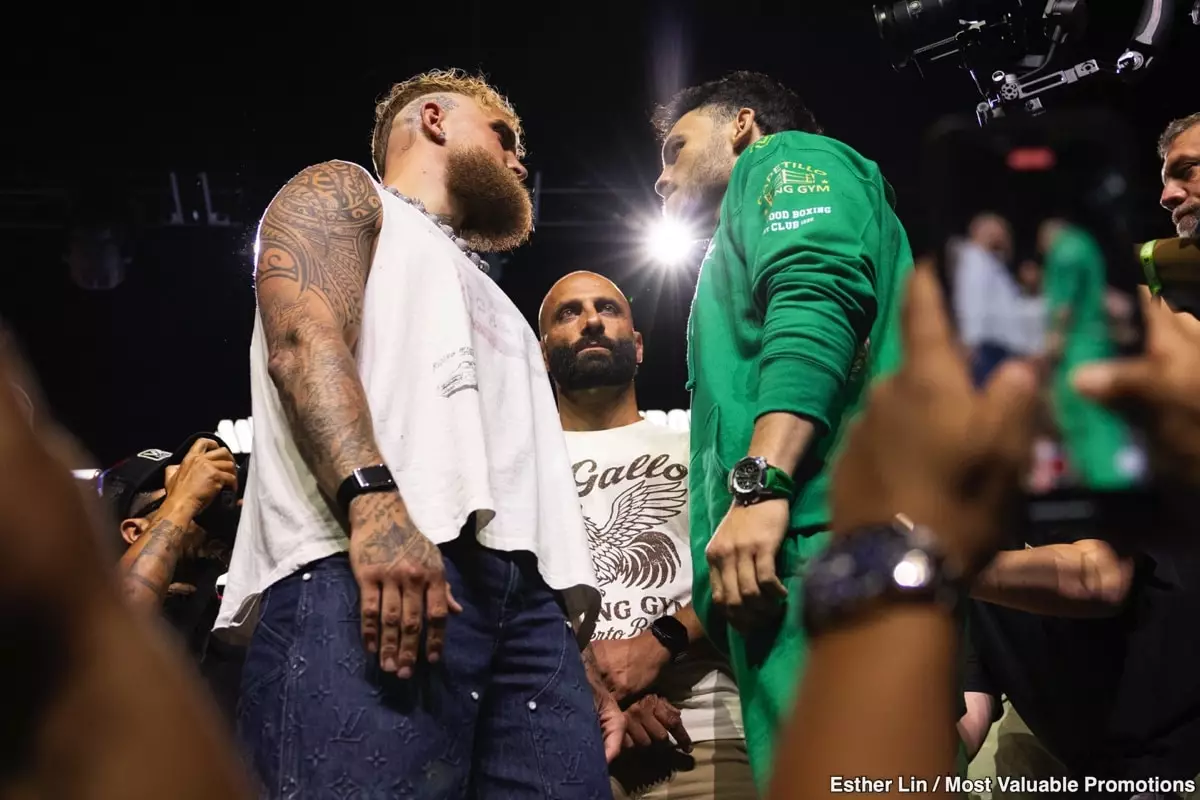Jake Paul’s rise from YouTube personality to professional boxer has been nothing short of polarizing. Since his pro debut in early 2020, Paul has carved out a unique position within boxing—not as a conventional pugilist but as a savvy promoter and fighter who has disrupted traditional boxing norms. While detractors deride him as a mere celebrity cashing in on a sport he barely mastered, it’s undeniable that Paul has brought a fresh wave of attention to boxing during an otherwise murky period.
His marketing prowess is particularly commendable, having successfully secured two Netflix pay-per-view events, an achievement that not even some longtime champions can boast. Indeed, the card that paired him with Mike Tyson was a spectacle more about entertainment than elite boxing skill, but it was precisely that blend of showmanship and sport that helped capture mainstream audiences. Jake’s ability to monetize bouts and create media buzz has boosted visibility, influencing how boxing promoters approach event production in the streaming era.
Questionable Opponents, Clever Spotlight
One of Jake Paul’s most decried tactics has been his choice of opponents—largely faded MMA fighters past their prime rather than established, high-level boxers. Veterans like Anderson Silva, Nate Diaz, and Tyron Woodley, while notable names in mixed martial arts, offered limited technical challenge in pure boxing terms. Yet, this strategy was ingenious in its own way; UFC fans turned out in droves, eager to see their champions perform under boxing rules. The unexpected victories Jake has claimed over these athletes earned him legitimate credibility within the crossover combat sports community.
The curious blend of celebrity culture with fighting skill has generated a new breed of boxing events, one where spectacle and personality often carry equal if not greater weight than technical merit. While this approach has sparked criticism for diluting the sport, it also signals that boxing can evolve and adapt to the demands of contemporary audiences longing for accessible entertainment.
When the Gloves Come Off: Facing Real Boxers
The limits of Jake Paul’s in-ring abilities became clearer when he faced a true boxer in Tommy Fury, the younger sibling of heavyweight champion Tyson Fury. Despite his celebrity status and past wins, Paul fell short in a competitive but decisive loss. This defeat underscored the gulf between him and fighters who have honed their craft over many years at high levels.
Now, Paul is set to face Julio Cesar Chavez Jr., a former world champion whose career and life have been, at various points, marred by inconsistency and questionable dedication. Chavez Jr, at 39, is far from the force he once was. His last meaningful fight ended in a corner retirement, and recent victories have come against non-traditional boxing opponents such as MMA fighters. Yet, his pedigree—a legacy name in boxing—carries weight that Jake has yet to fully contend with.
Legacy Versus Hype: Which Path Holds More Weight?
The matchup between Jake Paul and Chavez Jr offers a fascinating study in contrasts: youthful hype versus experienced, if faded, boxing lineage. Chavez Jr may have squandered potential with a lack of discipline and motivation but his foundational skills remain formidable compared to the celebrity fighter’s unorthodox ascent. Nevertheless, Paul’s youth, work ethic, and ring IQ have improved with each bout, making this clash unpredictable.
For bettors and fans alike, the odds reflect skepticism toward both fighters. Chavez Jr is a big underdog, while Paul is favored but far from a guaranteed winner. This uncertainty evokes a deeper question about the future of boxing—should it cling to traditional expertise and heritage, or embrace the disruption brought by figures like Paul, who blur lines between sport and entertainment?
The Broader Impact and Future Outlook
Regardless of one’s opinion on Jake Paul’s style or legitimacy, his impact on the sport’s exposure and promotional tactics is undeniable. He has challenged the boxing establishment to reconsider its marketing strategies, audience engagement, and matchmaking philosophies. Furthermore, his investment in women’s boxing signals a willingness to diversify the sport beyond his own fights, which could prove beneficial if sustained.
Meanwhile, undercards featuring rising contenders remind us that the boxing landscape still thrives on genuine competition and emerging talent. These fights often carry more technical merit and stakes than headline bouts driven by celebrity appeal.
In sum, Jake Paul’s boxing career embodies both opportunity and controversy—a case study in how the sport can evolve or risk dilution. His journey forces purists and casual observers alike to reevaluate what boxing means in today’s cultural context and who gets to define its future.

